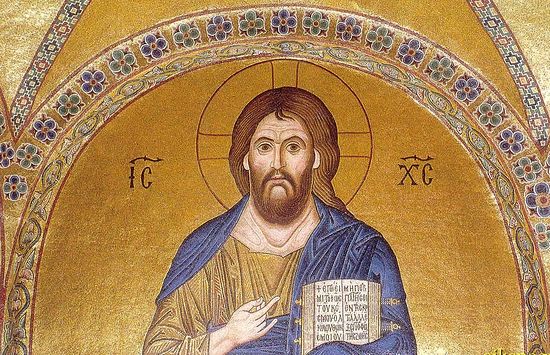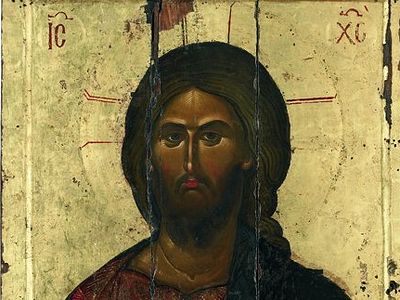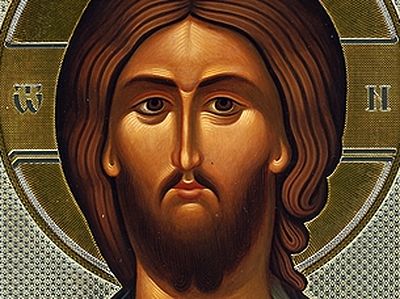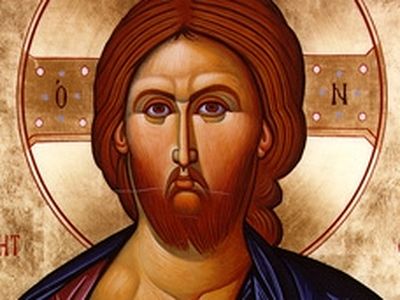In On the Orthodox Faith, St. John of Damascus declares: ‘The Son is the image of the Father, and the Spirit the image of the Son’. Such statements are easily read and passed over as among the more obvious Trinitarian statements. I add to this statement another from St. Irenaeus: “That which is invisible of the Son is the Father, and that which is visible of the Father is the Son.” Of course, St. Irenaeus’ statement represents a very early expression, since he was writing over 120 years before Nicaea. Both statements, however, are essential to understanding the heart of the Christian gospel.
That Christ is the precise image of the Father is put forth in the book of Hebrews (1:3). This is refined in Nicaea’s language of “homoousios” (“same substance”). But while that language speaks of “being” or “substance,” we easily lose sight of what is being put forward. Christ not only reveals the answer to the question, “Who is God?” but also the question, “What is God like?” It is this latter understanding that plays such an important role in St. Paul’s treatment of Christ Crucified.
St. Paul identifies Christ as the “Wisdom of God,” and the “Power of God” (1 Cor. 1:24). And in doing so, specifically links this with “Christ Crucified.” The crucifixion of Christ for Paul is more than an event that accomplishes salvation – it is an event that reveals Him in His fullness. The Christ of the Cross is the humble and self-emptying Christ (Phil. 2:5-11). He is the God whose “strength is made perfect in weakness.” And it is this very image that St. Paul points to as the character of his own imitation of Christ.
It is also an image that is properly used for our understanding of God. St. Paul again offers this:
…God has chosen the foolish things of the world to put to shame the wise, and God has chosen the weak things of the world to put to shame the things which are mighty; and the base things of the world and the things which are despised God has chosen, and the things which are not, to bring to nothing the things that are, that no flesh should glory in His presence. (1Co 1:27-29)
It is quite possible (and not uncommon) to read such a passage as God being primarily concerned for His glory. But that very thought belies its own failed assumptions. The “glory” of God is not the glory of wondrous success, shining fame and an incomparable reputation. Instead, we are told that we behold the glory of God “in the face of Jesus Christ.”
For it is the God who commanded light to shine out of darkness, who has shone in our hearts to give the light of the knowledge of the glory of God in the face of Jesus Christ. But we have this treasure in earthen vessels, that the excellence of the power may be of God and not of us. (2Co 4:6-7)
There are not infrequent attempts to create an antinomy of the theology of the Cross and a theology of glory. It is a false distinction when we understand that the Christ Crucified is the revelation of the glory of God.
It is not just seen in the Cross. There is an unrelenting theme throughout Scripture in which God accomplishes His work through that which is least and broken. Whether it is choosing the second son rather than the first, Joseph as slave and prisoner to be first in Egypt, Moses who stutters when he speaks, young David rather than his brothers, Israel itself as an insignificant nation, Abraham and Sarah who are too old to have children, and so on, the pattern is clear. Mary the Mother of God says it well in her hymn of praise:
He has shown strength with His arm; He has scattered the proud in the imagination of their hearts. He has put down the mighty from their thrones, And exalted the lowly. He has filled the hungry with good things, And the rich He has sent away empty. (Luk 1:51-53)
It is easy to recognize this as the way in which God deals with His creation, but it is yet something else to recognize that this is so because it is who God is. We are told that God resists the proud and gives grace to the humble. We do well to understand, however, that this is so because God Himself is humble.
Take My yoke upon you and learn from Me, for I am meek and lowly in heart, and you will find rest for your souls. (Mat 11:29)
We are invited not only to be meek and lowly, but to learn such meekness from the heart of God.
For many, such meekness in Christ is treated as something of a disguise, or a temporary work for the purpose of salvation. They all too quickly turn away from this understanding to assert that “He will come again in glory to judge the living and the dead!” But there is nothing to indicate that the definition of glory is somehow being altered for the sake of the Second Coming. As for the imagery of the Revelation of St. John, it should be read through the Cross rather than used as a corrective for the Cross.
The unfailing and living witness of the Orthodox faith is that the friends of God are foolish, weak, base and despised. That is the narrow way. Interestingly, it is a way that is the most open for all to walk. We need not be wise, strong, and well-thought-of. It turns the world upside-down and our lives along with it.
Right now the world is desperate for a few fools.




